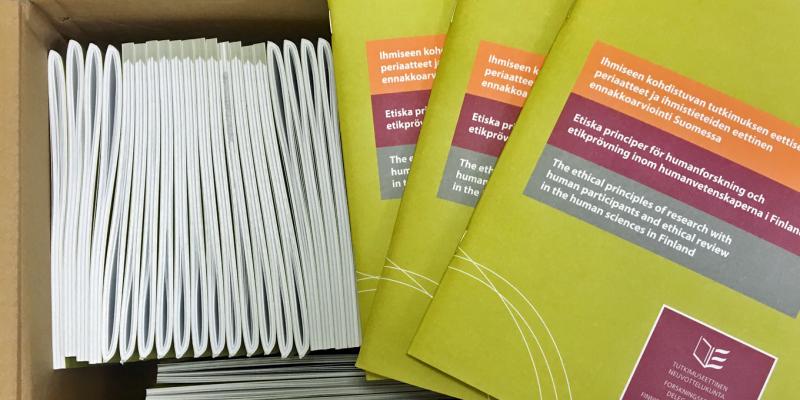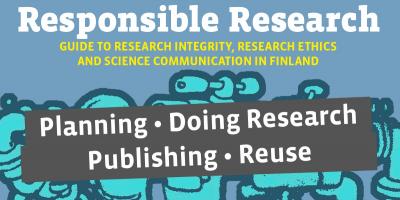Legislation aims to ensure that clinical research uses competent methods, produces reliable results and is ethically acceptable.
Medical research seeks to understand, develop and apply ways of safeguarding and improving human health. Medical science is largely founded on clinical research and clinical trials conducted on human subjects. Clinical research means conducting research into health and disease by applying a particular scientific method to human beings. It involves research activities connected to the practical work of doctors and, as a rule, to patient care.
This evidence-based medicine, as it is known, seeks to find the best possible form of treatment for each individual patient. Drug trials are one typical example of clinical research, used to determine the effectiveness and safety of a medicinal product in treating different diseases.
Clinical research means conducting research into health and disease by applying a particular scientific method to human beings.
Clinical research involves intervening in the integrity of the research subject for reasons justified by the research. For example, the subject is given a particular product being studied, where insufficient evidence is available about how well it is tolerated or its effectiveness. The subject may also be subjected to additional measures (taking samples, research measures) that would not be carried out as part of normal treatment. This kind of activity may solely be carried out with the subject’s own permission and consent.
Medical research is also always associated with unknown risks and unexpected harm. Therefore, it is important to define generally accepted research methods and ways of protecting those participating in research. The legislation that guides activities aims to ensure that clinical research uses competent methods, produces reliable results and is otherwise ethically acceptable.
The ethical principles of medical research
In Finland, the legislation governing medical research includes the Medical Research Act, the Biobank Act and the Act on the Medical Use of Human Organs, Tissues and Cells. They include provisions on the protection and rights of research subjects and on the duties of official bodies associated with research activities.
Free informed consent and the primacy of the individual’s rights are ethical principles enshrined in law. All the projects within the scope of the law must be evaluated by an ethics committee. This requires that the research is justified, planned and drawn up with care and that the potential benefits and harmful effects of the research have been evaluated.
The person appointed as the researcher with overall responsibility for the practical conduct of the research must be a doctor, dentist or other person with the appropriate scientific and professional competence. Among other things, the researcher must ensure that the research can be conducted safely. The researcher must also ensure that the documents intended for the research subject are appropriate, comprehensible and applicable to Finnish research subjects.
Free informed consent
Free informed consent is a fundamental requirement of medical research. This is a completely central ethical norm which may not be merely left as a formality. Participation in medical research is always to be voluntary, in all circumstances. Research activity which involves intervention in the integrity of a person may only be conducted with the consent of the research subject or his or her representative (next of kin, other family member or legal representative). Voluntary means that participation may cease at any point without the subject having to justify this decision to anyone.
Free informed consent is a fundamental requirement of medical research.
Participation in research may only be genuinely voluntary if the person has understood the information that they were given. In obtaining informed consent, the researcher or commissioning party must draw up written information for the research subject in which the research is described in sufficient detail and in comprehensible language. The information must include all the essential details that the research subject needs in order to give informed consent to the research. The reasons for every measure involved in the research must also be given both to the research subject and his or her representative, if any.
Medical ethics committees
According to the Medical Research Act, before any medical research is undertaken, an independent ethics committee must have given a positive statement on the research plan. A preliminary ethical review is compulsory in all medical research. The prereview is predominantly based on legislation in force and other recognised ethical principles.
The independent ethics committee judges whether the research has been planned in an ethically acceptable way such that participation in the research does not expose the research subject to unnecessary harm or risk. In assessing whether or not the plan is ethical, particular attention is paid to the safety, position and rights of the research subject. It is especially important to assess the scientific grounds and the appropriateness of the information to be given to the research subject and of the consent procedure.
The tasks of the ethics committee do not, however, include granting the actual permit for the research to be carried out. The ethics committee issues a statement which the body deciding whether or not to grant a research permit is obliged to take into account.
Each hospital district maintaining a university hospital should have at least one ethics committee. As the largest hospital district in Finland, the Hospital District of Helsinki and Uusimaa currently has a total of four ethics committees.
Outi Konttinen, General Secretary, National Committee on Medical Research Ethics (TUKIJA)
Further information:
The contact details of the ethics committees of all the university hospital districts are found on the website of the National Committee on Medical Research Ethics (TUKIJA): www.tukija.fi/en
Medical Research Act: http://www.finlex.fi/fi/laki/ajantasa/1999/19990488
You might also be interested in
Tämä teos on lisensoitu Creative Commons Nimeä 4.0 Kansainvälinen -lisenssillä. Detta verk är licensierat under en Creative Commons Erkännande 4.0 Licens. This work is licensed under a Creative Commons Attribution 4.0 International license.

